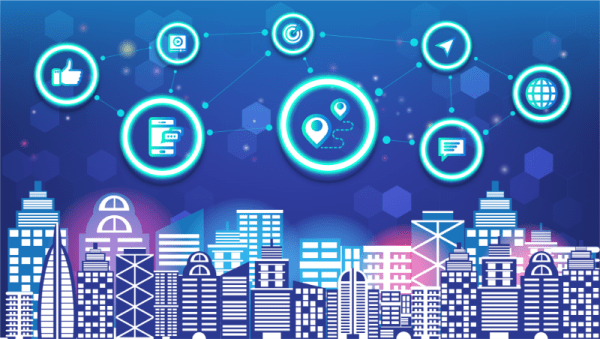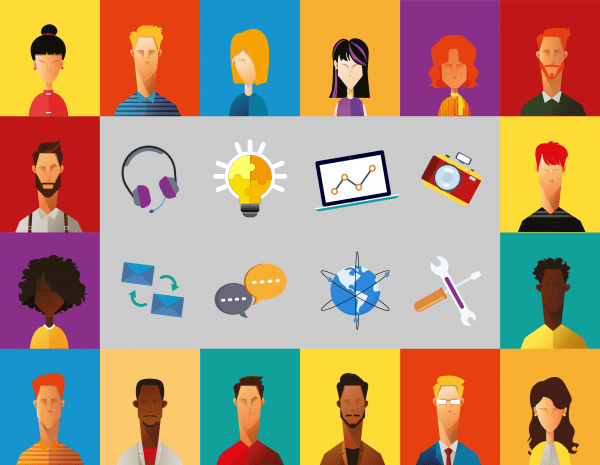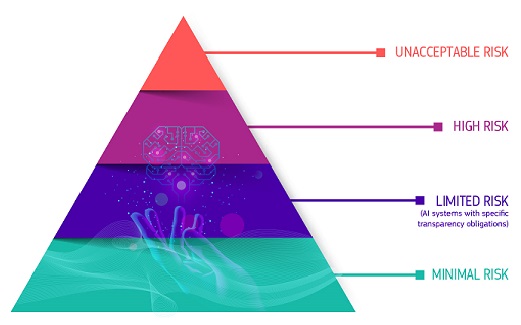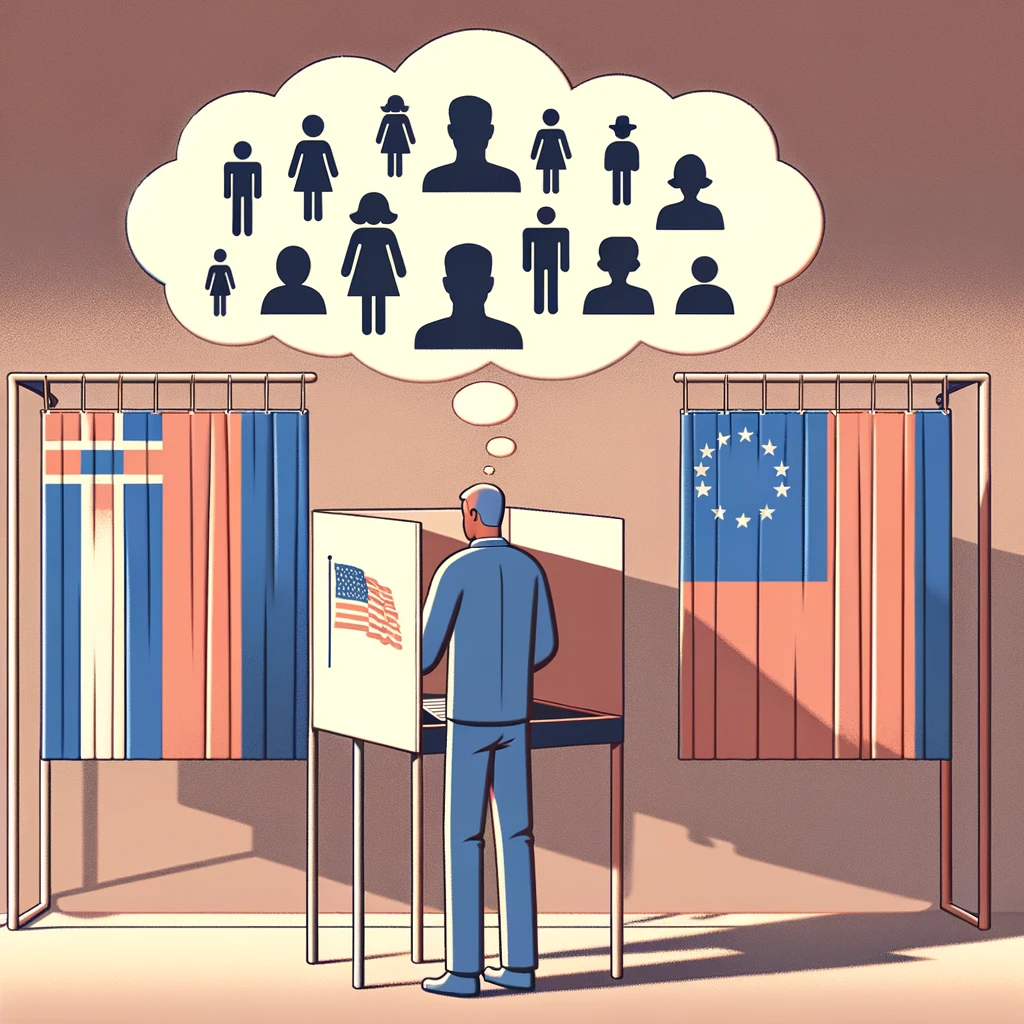These days the path of empowerment is through media literacy.
If you were born in the 20th or beginning of the 21st century, particularly in an economically developed country, you have likely grown up in a population where literacy rates are today nearly universal. It is easy to forget that for most of human history since the advent of writing, the majority of people around the world were completely illiterate. The ability to read and write, long associated with the exercise of power, was a set of technical skills exclusive to a privileged few, which enabled them to maintain that power.
At least until the Enlightenment when universal literacy became aspirational, and beyond into the first Industrial Revolution when it started to become reality, literacy was a key tool of those in power to exercise control over the majority of the population. Things like access to information, education, socioeconomic advancement, free expression, political participation and so on, all very much depended on whether you were literate enough, and thus independent enough, to attain them. While this is no less true today, the media literacy required of the present age demands much more.

Since the advent of mass produced print and electronic media, media technology has changed dramatically. As they have continued to multiply and evolve into what has become today’s increasingly digital landscape, so too have the skills needed to use them and our understanding of what it means to be literate. With massive changes in the media environment particularly over the last twenty years, a new media literacy is required to prevent widespread disempowerment of people. This applies to developed and developing countries alike. There are some who have claimed this has already occurred and we are currently living in a new Dark Age. That when it comes to today’s media, most of the world’s population is gravely illiterate, ill-equipped to fully participate in the media environment and hence not empowered enough to advance in and attain the benefits of a highly digitized society.
Just as needing to know how to write does not require that you become Shakespeare, learning to navigate and know your way around the new media environment does not require that you become a lead programmer at Google. However, a baseline media literacy is a must for our basic functioning, free expression, and responsibility as engaged citizens in modern societies. Whether you want to participate in the political process, to pursue community initiatives, to educate and/or market yourself professionally, or even to gain an accurate sense of the world, media literacy skills are absolutely essential.
So what are these new tools, these new skill sets? In this age of out-of-the-box ready-to-use technology and automation, what is required of us?
Technical skills – At minimum, we must possess enough technical know-how to competently use our devices and navigate the web. Further, we ought to be able to produce, edit and distribute content of all types, whether text, image, audio or video. We should know how to craft, establish and manage an online presence, either on social media or by constructing and maintaining a basic website with some introductory SEO. Beyond this, we should be able to “hack” our media technology to meet our specific needs, that is, to modify software and device settings for our individual uses, personal security and overall well-being.
Receptive skills – We need to be aware of “background processes” and the ways in which information comes to us. We should be able to discover who is monitoring our on- and off-line behavior, how and for what purposes. We should be aware of (and be able to regulate) the algorithms that tailor our access to information in search and news feeds and those that modify and narrow the scope of our online behavior. We must sharpen our critical thinking and acquire basic knowledge of how our media functions, including strategies for overcoming technical problems and limitations. We need to exercise due diligence when it comes to various social media platforms and applications, including searching for, sorting through, decoding, and ensuring the quality of the information we receive along with its sources.
Social skills – In the digital sphere, although we act locally, we must think globally. Our information and content can be infinitely reproduced, removed from its original context and modified for purposes other than for what it was intended. We must be aware of the ethical distance that digital communication often produces and practice good “netiquette“, behavior appropriate to different media, cultural contexts and online fora, in particular knowing how and when to share content.
Emotional and metacognitive skills, learning to think about our own thought processes and those of others. Acknowledging our rational limitations, such as our susceptibility to confirmation bias or illusory truth effects, to things that “feel true” but are not in fact. We need to develop our capacities for skepticism toward truth claims and unverified sources of information. We also need to develop healthy habits of media use by using it intentionally, recognizing the ways in which media can be addictive and developing an ethical attitude toward our own and other’s attention.
Media technology companies are not incentivized to cede control and influence to users, even as their inventions have downgraded our social fabric and discourse. However, due to increases in public awareness and pressure about the need for safeguards and increased media literacy, these companies have begun to provide us with some tools. Tools like fact-checking sites to corroborate or debunk truth claims, encrypted messaging, private browsing and extensions to curb background monitoring practices and use of our private data. Silent modes and usage apps on our devices, to avoid distractions and curb excessive media consumption.
Ultimately, however, the responsibility for improving the media landscape and empowering all of us to thrive within it lies with us. Becoming fully media literate, maintaining healthy habits of media use, and contributing to a safe and unpolluted media environment must be a top priority if we are to gain independence, express ourselves fully and exercise power today and in the future. But we cannot do it alone. It is also imperative that our communities, our public institutions and civic organizations like EAVI, recognize the current deficit in media literacy, the damaging effect it is having on society, and the urgency of providing all of us with a substantive media literacy education that includes the curricula and tools required to empower us.
It is no exaggeration to say, that over which we can exert no control in turn can, and often does, control us. This is no less true of our relationship to our present media environment. Without basic media literacy skills, we are vulnerable to manipulation and exclusion in today’s highly digitized societies. Whether directly, death by a thousand pings and algorithmic manipulation or indirectly through viral clickbait and opt-out default functionality, we need to be literate enough to exercise some control. Taking responsibility for and prioritizing media literacy, for ourselves and our societies more broadly, is the way we maintain our agency and power in the 21st century digital world.
Written by: Andrew Wojtkielewicz
Images from: Vecteezy.com
These days the path of empowerment is through media literacy.
If you were born in the 20th or beginning of the 21st century, particularly in an economically developed country, you have likely grown up in a population where literacy rates are today nearly universal. It is easy to forget that for most of human history since the advent of writing, the majority of people around the world were completely illiterate. The ability to read and write, long associated with the exercise of power, was a set of technical skills exclusive to a privileged few, which enabled them to maintain that power.
At least until the Enlightenment when universal literacy became aspirational, and beyond into the first Industrial Revolution when it started to become reality, literacy was a key tool of those in power to exercise control over the majority of the population. Things like access to information, education, socioeconomic advancement, free expression, political participation and so on, all very much depended on whether you were literate enough, and thus independent enough, to attain them. While this is no less true today, the media literacy required of the present age demands much more.

Since the advent of mass produced print and electronic media, media technology has changed dramatically. As they have continued to multiply and evolve into what has become today’s increasingly digital landscape, so too have the skills needed to use them and our understanding of what it means to be literate. With massive changes in the media environment particularly over the last twenty years, a new media literacy is required to prevent widespread disempowerment of people. This applies to developed and developing countries alike. There are some who have claimed this has already occurred and we are currently living in a new Dark Age. That when it comes to today’s media, most of the world’s population is gravely illiterate, ill-equipped to fully participate in the media environment and hence not empowered enough to advance in and attain the benefits of a highly digitized society.
Just as needing to know how to write does not require that you become Shakespeare, learning to navigate and know your way around the new media environment does not require that you become a lead programmer at Google. However, a baseline media literacy is a must for our basic functioning, free expression, and responsibility as engaged citizens in modern societies. Whether you want to participate in the political process, to pursue community initiatives, to educate and/or market yourself professionally, or even to gain an accurate sense of the world, media literacy skills are absolutely essential.
So what are these new tools, these new skill sets? In this age of out-of-the-box ready-to-use technology and automation, what is required of us?
Technical skills – At minimum, we must possess enough technical know-how to competently use our devices and navigate the web. Further, we ought to be able to produce, edit and distribute content of all types, whether text, image, audio or video. We should know how to craft, establish and manage an online presence, either on social media or by constructing and maintaining a basic website with some introductory SEO. Beyond this, we should be able to “hack” our media technology to meet our specific needs, that is, to modify software and device settings for our individual uses, personal security and overall well-being.
Receptive skills – We need to be aware of “background processes” and the ways in which information comes to us. We should be able to discover who is monitoring our on- and off-line behavior, how and for what purposes. We should be aware of (and be able to regulate) the algorithms that tailor our access to information in search and news feeds and those that modify and narrow the scope of our online behavior. We must sharpen our critical thinking and acquire basic knowledge of how our media functions, including strategies for overcoming technical problems and limitations. We need to exercise due diligence when it comes to various social media platforms and applications, including searching for, sorting through, decoding, and ensuring the quality of the information we receive along with its sources.
Social skills – In the digital sphere, although we act locally, we must think globally. Our information and content can be infinitely reproduced, removed from its original context and modified for purposes other than for what it was intended. We must be aware of the ethical distance that digital communication often produces and practice good “netiquette“, behavior appropriate to different media, cultural contexts and online fora, in particular knowing how and when to share content.
Emotional and metacognitive skills, learning to think about our own thought processes and those of others. Acknowledging our rational limitations, such as our susceptibility to confirmation bias or illusory truth effects, to things that “feel true” but are not in fact. We need to develop our capacities for skepticism toward truth claims and unverified sources of information. We also need to develop healthy habits of media use by using it intentionally, recognizing the ways in which media can be addictive and developing an ethical attitude toward our own and other’s attention.
Media technology companies are not incentivized to cede control and influence to users, even as their inventions have downgraded our social fabric and discourse. However, due to increases in public awareness and pressure about the need for safeguards and increased media literacy, these companies have begun to provide us with some tools. Tools like fact-checking sites to corroborate or debunk truth claims, encrypted messaging, private browsing and extensions to curb background monitoring practices and use of our private data. Silent modes and usage apps on our devices, to avoid distractions and curb excessive media consumption.
Ultimately, however, the responsibility for improving the media landscape and empowering all of us to thrive within it lies with us. Becoming fully media literate, maintaining healthy habits of media use, and contributing to a safe and unpolluted media environment must be a top priority if we are to gain independence, express ourselves fully and exercise power today and in the future. But we cannot do it alone. It is also imperative that our communities, our public institutions and civic organizations like EAVI, recognize the current deficit in media literacy, the damaging effect it is having on society, and the urgency of providing all of us with a substantive media literacy education that includes the curricula and tools required to empower us.
It is no exaggeration to say, that over which we can exert no control in turn can, and often does, control us. This is no less true of our relationship to our present media environment. Without basic media literacy skills, we are vulnerable to manipulation and exclusion in today’s highly digitized societies. Whether directly, death by a thousand pings and algorithmic manipulation or indirectly through viral clickbait and opt-out default functionality, we need to be literate enough to exercise some control. Taking responsibility for and prioritizing media literacy, for ourselves and our societies more broadly, is the way we maintain our agency and power in the 21st century digital world.
Written by: Andrew Wojtkielewicz
Images from: Vecteezy.com
These days the path of empowerment is through media literacy.
If you were born in the 20th or beginning of the 21st century, particularly in an economically developed country, you have likely grown up in a population where literacy rates are today nearly universal. It is easy to forget that for most of human history since the advent of writing, the majority of people around the world were completely illiterate. The ability to read and write, long associated with the exercise of power, was a set of technical skills exclusive to a privileged few, which enabled them to maintain that power.
At least until the Enlightenment when universal literacy became aspirational, and beyond into the first Industrial Revolution when it started to become reality, literacy was a key tool of those in power to exercise control over the majority of the population. Things like access to information, education, socioeconomic advancement, free expression, political participation and so on, all very much depended on whether you were literate enough, and thus independent enough, to attain them. While this is no less true today, the media literacy required of the present age demands much more.

Since the advent of mass produced print and electronic media, media technology has changed dramatically. As they have continued to multiply and evolve into what has become today’s increasingly digital landscape, so too have the skills needed to use them and our understanding of what it means to be literate. With massive changes in the media environment particularly over the last twenty years, a new media literacy is required to prevent widespread disempowerment of people. This applies to developed and developing countries alike. There are some who have claimed this has already occurred and we are currently living in a new Dark Age. That when it comes to today’s media, most of the world’s population is gravely illiterate, ill-equipped to fully participate in the media environment and hence not empowered enough to advance in and attain the benefits of a highly digitized society.
Just as needing to know how to write does not require that you become Shakespeare, learning to navigate and know your way around the new media environment does not require that you become a lead programmer at Google. However, a baseline media literacy is a must for our basic functioning, free expression, and responsibility as engaged citizens in modern societies. Whether you want to participate in the political process, to pursue community initiatives, to educate and/or market yourself professionally, or even to gain an accurate sense of the world, media literacy skills are absolutely essential.
So what are these new tools, these new skill sets? In this age of out-of-the-box ready-to-use technology and automation, what is required of us?
Technical skills – At minimum, we must possess enough technical know-how to competently use our devices and navigate the web. Further, we ought to be able to produce, edit and distribute content of all types, whether text, image, audio or video. We should know how to craft, establish and manage an online presence, either on social media or by constructing and maintaining a basic website with some introductory SEO. Beyond this, we should be able to “hack” our media technology to meet our specific needs, that is, to modify software and device settings for our individual uses, personal security and overall well-being.
Receptive skills – We need to be aware of “background processes” and the ways in which information comes to us. We should be able to discover who is monitoring our on- and off-line behavior, how and for what purposes. We should be aware of (and be able to regulate) the algorithms that tailor our access to information in search and news feeds and those that modify and narrow the scope of our online behavior. We must sharpen our critical thinking and acquire basic knowledge of how our media functions, including strategies for overcoming technical problems and limitations. We need to exercise due diligence when it comes to various social media platforms and applications, including searching for, sorting through, decoding, and ensuring the quality of the information we receive along with its sources.
Social skills – In the digital sphere, although we act locally, we must think globally. Our information and content can be infinitely reproduced, removed from its original context and modified for purposes other than for what it was intended. We must be aware of the ethical distance that digital communication often produces and practice good “netiquette“, behavior appropriate to different media, cultural contexts and online fora, in particular knowing how and when to share content.
Emotional and metacognitive skills, learning to think about our own thought processes and those of others. Acknowledging our rational limitations, such as our susceptibility to confirmation bias or illusory truth effects, to things that “feel true” but are not in fact. We need to develop our capacities for skepticism toward truth claims and unverified sources of information. We also need to develop healthy habits of media use by using it intentionally, recognizing the ways in which media can be addictive and developing an ethical attitude toward our own and other’s attention.
Media technology companies are not incentivized to cede control and influence to users, even as their inventions have downgraded our social fabric and discourse. However, due to increases in public awareness and pressure about the need for safeguards and increased media literacy, these companies have begun to provide us with some tools. Tools like fact-checking sites to corroborate or debunk truth claims, encrypted messaging, private browsing and extensions to curb background monitoring practices and use of our private data. Silent modes and usage apps on our devices, to avoid distractions and curb excessive media consumption.
Ultimately, however, the responsibility for improving the media landscape and empowering all of us to thrive within it lies with us. Becoming fully media literate, maintaining healthy habits of media use, and contributing to a safe and unpolluted media environment must be a top priority if we are to gain independence, express ourselves fully and exercise power today and in the future. But we cannot do it alone. It is also imperative that our communities, our public institutions and civic organizations like EAVI, recognize the current deficit in media literacy, the damaging effect it is having on society, and the urgency of providing all of us with a substantive media literacy education that includes the curricula and tools required to empower us.
It is no exaggeration to say, that over which we can exert no control in turn can, and often does, control us. This is no less true of our relationship to our present media environment. Without basic media literacy skills, we are vulnerable to manipulation and exclusion in today’s highly digitized societies. Whether directly, death by a thousand pings and algorithmic manipulation or indirectly through viral clickbait and opt-out default functionality, we need to be literate enough to exercise some control. Taking responsibility for and prioritizing media literacy, for ourselves and our societies more broadly, is the way we maintain our agency and power in the 21st century digital world.
Written by: Andrew Wojtkielewicz
Images from: Vecteezy.com
























































































































































